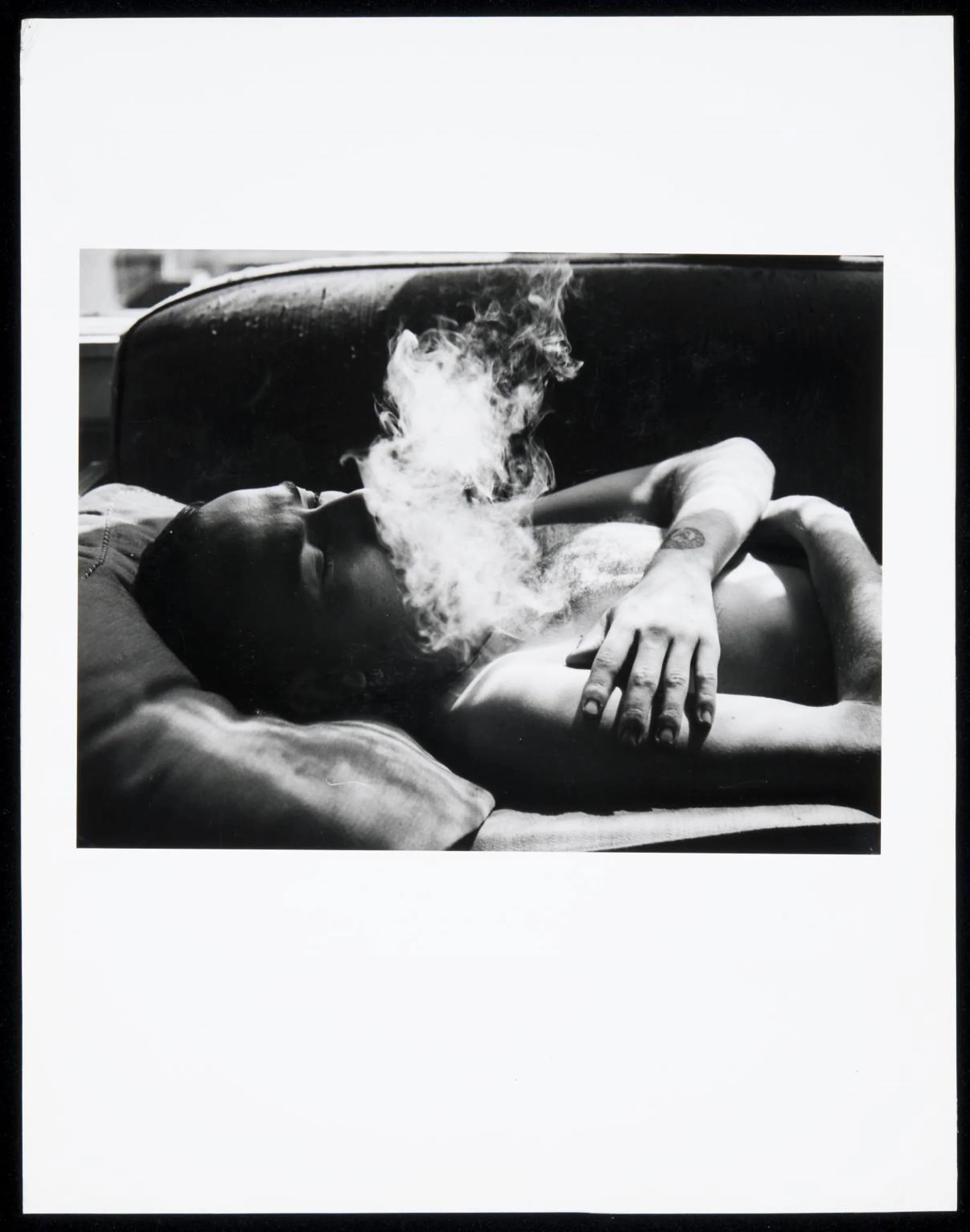Stories of Dissolution by David Wojnarowicz
What is this little guy’s job in the world. If this little guy dies does the world knows? Does the world feel this? Does something get displaced? If this little guy dies does the world get a little lighter? Does the planet rotate a little faster? If this little guy dies, without his body to shift the currents of air, does the air flow perceptibly faster? What shifts if this little guy dies? Do people speak language a little bit differently? If this little guy dies does some little kid somewhere wake up with a bad dream? Does an almost imperceptible link in the chain snap? Will civilization stumble? — David Wojnarowicz (from the artwork What Is This Little Guy’s Job in the World, 1990)
It is dangerous when there is no history. There is no beginning and no end. No before and no after. Time is scattered in pieces. Split. Pieces by pieces, limbs by limbs things are put together, happen together. An indeterminable present is moving shapeless on itself.
David Wojnarowicz’s body of works matches this absurd, casual yet united assembly of delicate poetry. Starting from his writings, it is possible to follow a common thread that keeps a chaotic and rich organism together. Bodies, erotism, freedom. Capitalism, diversity, discrimination. Sickness, fear, love. And drugs. Life as a signifying outside subjective control.
Poetry survives in his writings beat. His diaries are the spleen of Post-Fordist America. It is the scene of the outcast, bum, forgotten. Those who have not been acknowledged occupy the photographic and narrative objective of Wojnarowicz.
Stories of dissolutions. Nocturnal Visions. Delirious deaths.
It's night. In an empty warehouse, the figures advance in the shadows. They touch, they kiss. There are snakes, frogs, insects. A crucifix. Heroin. Love. A boy with a leather jacket, tattoos in sight. Death. A white flower. The crowd. The back of a man. His legs. The neck and the line that separates her from the nape, the hands that slip on the body. The president of the united states. A deserted road somewhere in Arizona. Everything unfolds on a random horizon.
There is really no difference between memory and sight, fantasy and actual vision. Vision is made of subtle fragmented movement of the eyes. These fragmented pieces of the world are turned and pressed into memory before they can register in the brain. Fantasized images are actually made up of millions of disjointed observations collected and collated into the forms and texture of thoughts.
— David Wojnarowicz (from Close to the knives A Memoir of Disintegration)
Looking at his photos, reading his writings, listening to his voice; It’s eating his sandwich of reality. In this wilderness without history, time exhaust as an eternal present memory. Everything happens over and over again. It resembles a dream, sometimes a nightmare, but it is reality. The world we live in and that we try to shape or ignore. This time, this present is some time of love and fusion.
It’s a feeling of pleasure and repulsion. The skeleton moving under the skin. Rats eating small children limbs. Swollen limbs. Tongues licking and biting neck. Thousands of insects, ants crawling over a crucifix. A buffalo jumping down a hill. Some of these images have marked the collective imagination. They have reached a mass sleeping conscience. And they shifted it even though just a little. Maybe for this reason, the world is a better place.
David Wojnarowicz belongs to this dimension where scattered overlapping memories became narratives of lost people, forgotten places, abandoned bodies, spirited houses.
The spark is to live on the edge but still have something to say to overturn the system of moral conventions. Those common names that apply to some and not to everyone.
Drive and feelings, body and thoughts cannot be framed and labeled. Things move fast — reality slides.
Is there a way to escape all this? Unfortunately not. Death is always near.
But there is a way to trick this chain and make a moment stay forever. A sort of truth or dare with death. When death is oblivious, then life is a memory that blends with reality.
Hell is a place on earth. Heaven is a place in our head — David Wojnarowicz


















